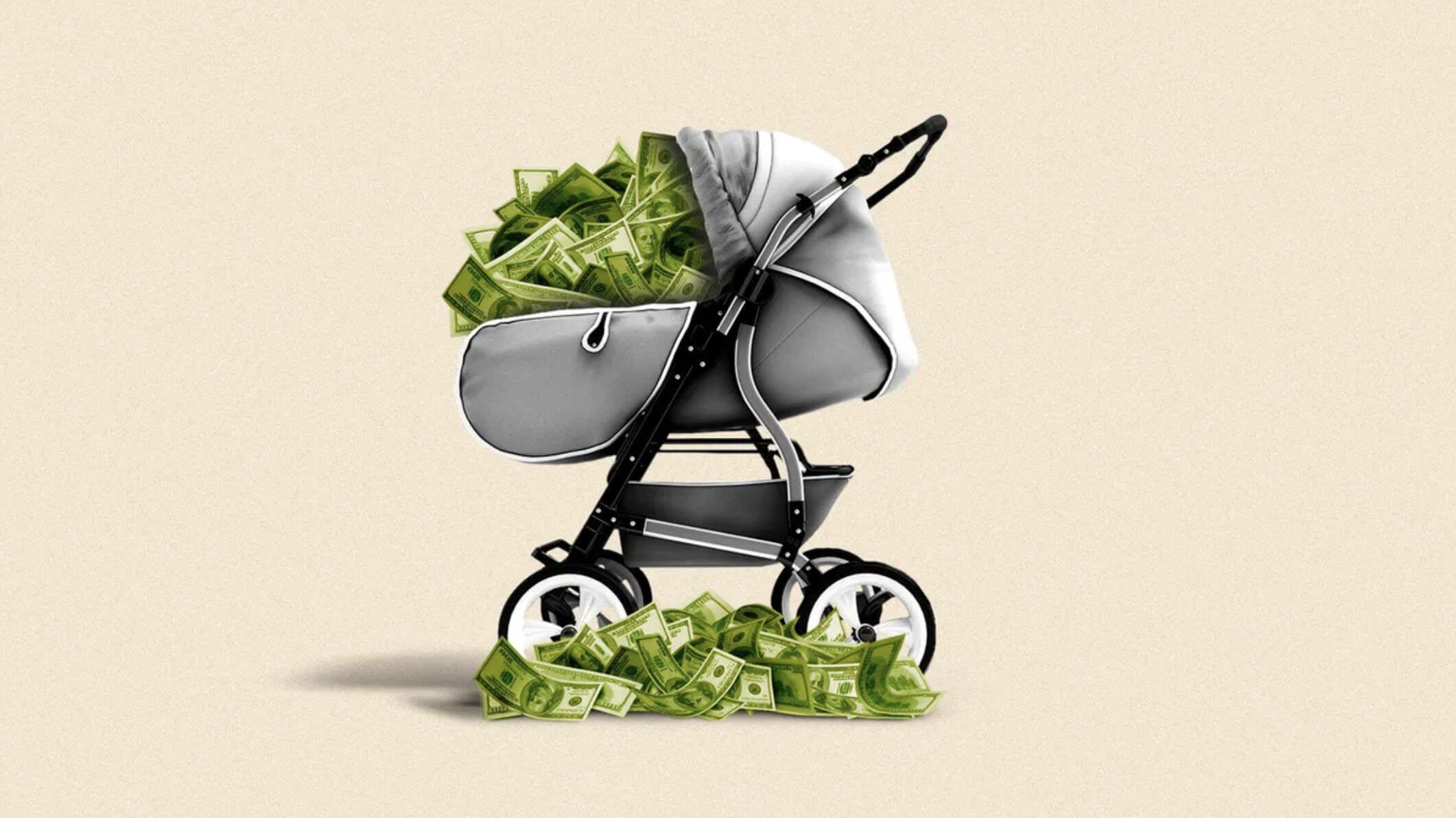5/20 Torchbearer Weekly Policy Update
Thank you for letting us be your trusted source for local, state, and federal policy updates. Let’s dig in…
- Indianapolis Lawmaker is Mike Braun’s Pick for Lieutenant Governor
- Southern Indiana State Rep Announces Retirement
- Lawmakers to Examine AI, Medicaid Costs and More Over Interim
- Indiana Tax Changes Drive General Fund Expectation Miss
- Indiana Hospital Prices Remain Among Highest in Nation, Report Says
- Inflation Falls in April to 3.4 Percent, Reverses Trend
- Childcare Costs More Than Rent, Indiana Among 11 States Feeling the Financial Burden
- Share the Torchbearer Newsletter with Your Network!
- Important Dates
Let’s dive in.
Indianapolis Lawmaker is Mike Braun’s Pick for Lieutenant Governor

Republican nominee Sen. Mike Braun will ask delegates to confirm Rep. Julie McGuire as his running mate for the November general election. Braun easily won the Republican nomination and will face Democrat Jennifer McCormick and Libertarian Donald Rainwater.
What they’re saying: Braun said he picked McGuire, who is serving in her first term in the Indiana House, because she is “a strong conservative who has lived the values of faith, family, and community.”
Why it matters: Delegates at the Republican State Convention vote to confirm the lieutenant governor nominee and typically approve a gubernatorial nominee’s pick, but they are not required to do so. Micah Beckwith, a minister, is also campaigning to be the party’s lieutenant governor nominee.
The bottom line: Republican State Convention delegates will choose which lieutenant governor candidate will be on the November ballot when they meet in Indianapolis on June 15. (IBJ)
Southern Indiana State Rep Announces Retirement

State Rep. Rita Fleming, D-Jeffersonville, announced her retirement effective immediately on Monday. She has served House District 71 since 2018.
Why it matters: Fleming's retirement creates an opportunity for Democrats to caucus in another candidate.
The big picture: Fleming's departure brings attention to the future representation of Jeffersonville, Clarksville, and New Albany. It raises questions about the values and party affiliation of the next representative.
The bottom line: Fleming's retirement signifies a shift in leadership and opens up possibilities for new legislation and initiatives in House District 71. (Inside Indiana Business)
Lawmakers to Examine AI, Medicaid Costs and More Over Interim

Lawmakers in Indiana will be addressing artificial intelligence (AI), Medicaid spending, and other topics in their upcoming interim committee meetings. However, marijuana will not be revisited. These meetings are an opportunity for lawmakers to delve deep into policy issues and propose legislation for the next session. The agenda includes studying AI technology, its benefits, and risks, as well as its impact on Hoosiers. The impact of absenteeism on students and school funding, school discipline, child safety, and the state budget, including Medicaid costs, will also be discussed. Two ambitious task forces will continue their efforts: one focused on reviewing state and local taxes, and another on funding Indiana's future infrastructure needs. Some lawmakers expressed disappointment that environmental issues were not included in the study topics.
Why it matters: These interim committee meetings are crucial for lawmakers to thoroughly analyze complex policy issues and make informed decisions about legislation. The topics being addressed, such as AI, Medicaid, and education, could potentially outline legislation we will see in future legislative sessions. Lawmakers must carefully consider these issues to make decisions that benefit their constituents and promote the overall progress of Indiana. (Indiana Capital Chronicle)
The full list of topics is available here.
Indiana Tax Changes Drive General Fund Expectation Miss

Tax revenue to Indiana's General Fund tumbled over 12%, falling $393 million below projections last month. However, year-to-date collections are still on track, with a slight increase of 0.1% compared to forecast. The decline in individual income tax collections, with a $300 million shortfall, played a significant role in the monthly miss.
The big picture: Indiana's tax revenue projections are affected by various factors, including individual income tax collections, corporate tax collections, and quarterly deadline months. It is crucial to analyze the fiscal year-to-date trend to understand the overall revenue situation.
The bottom line: Indiana's General Fund experienced a significant tax revenue shortfall, primarily due to lower individual income tax collections. Understanding the impact of changing tax regulations and analyzing the fiscal year-to-date trend will provide insights into revenue trends and potential adjustments. (Indiana Capital Chronicle)
Indiana Hospital Prices Remain Among Highest in Nation, Report Says

Indiana's hospital prices are nearly three times higher than what Medicare pays, according to a study by Rand Corp. This is higher than the national average and neighboring states. However, the state's total commercial hospital prices have slightly improved from the last study.
Why it matters: The high hospital prices in Indiana affect both employers and employees who pay significantly more.
The big picture: Indiana's hospital prices are among the highest in the nation, with high facility prices and low physician prices. This highlights the need for comprehensive solutions to address all factors contributing to healthcare costs. The Indiana Hospital Association disputes many findings in the report.
The bottom line: Indiana hospitals face financial losses and rising costs. They are committed to reducing healthcare costs and seeking partnerships with policymakers for effective solutions. (Inside Indiana Business)
Inflation Falls in April to 3.4 Percent, Reverses Trend

In April, inflation slowed after several months of faster-than-expected price increases, according to data released by the Labor Department. The consumer price index rose 0.3 percent in April and 3.4 percent over the previous 12 months. Housing and gas prices were the key drivers behind the rise in consumer prices, with housing prices up 0.4 percent in April and gas prices rising 2.8 percent last month. The new inflation numbers come amid increasing concern among policymakers and investors over the path of price increases.
Why it matters: The inflation slowdown is important for policymakers and investors to monitor. The data suggests that inflation is cooling, providing hope that it will gradually move towards the Federal Reserve's target of 2 percent annual price increases. This impacts interest rates decisions and can have broader economic implications.
The big picture: Inflation had plateaued after a sharp decline in the past two years. However, the recent numbers show a slowdown in the rate of increase, which provides some relief. Policymakers and investors will continue to watch the trend closely.
The bottom line: The slowdown in inflation suggests some stability in the economy, but the Federal Reserve still needs more data to adjust its rate easing plans. The path towards the 2 percent inflation target is expected to be smoother, but uncertainties remain. (The Hill)
Childcare Costs More Than Rent, Indiana Among 11 States Feeling the Financial Burden

Child care costs in Indiana are more expensive than rent in 11 states, putting a financial burden on families. Finding affordable and high-quality child care is challenging, with long waiting lists and limited availability for infant classrooms. Indiana ranks 15th in the country for the highest cost of infant care compared to income, according to a report from Childcareaware.org. With child care costs double that of the average monthly rent, families struggle to afford the expenses.
Why it matters: Indiana's skyrocketing child care costs impact families who desire to have children and provide them with a comfortable life. The affordability crisis forces parents to make difficult decisions and puts financial strain on households. It is important to address this issue to ensure access to affordable child care.
The bottom line: Relaxing certification requirements could make child care more affordable for families. (WRTV)
Share the Torchbearer Newsletter with Your Network!

Not signed up for our weekly newsletter? Sign up today!
Important Dates:

We will keep you updated as Interim Study Committees and other important meetings are scheduled.
